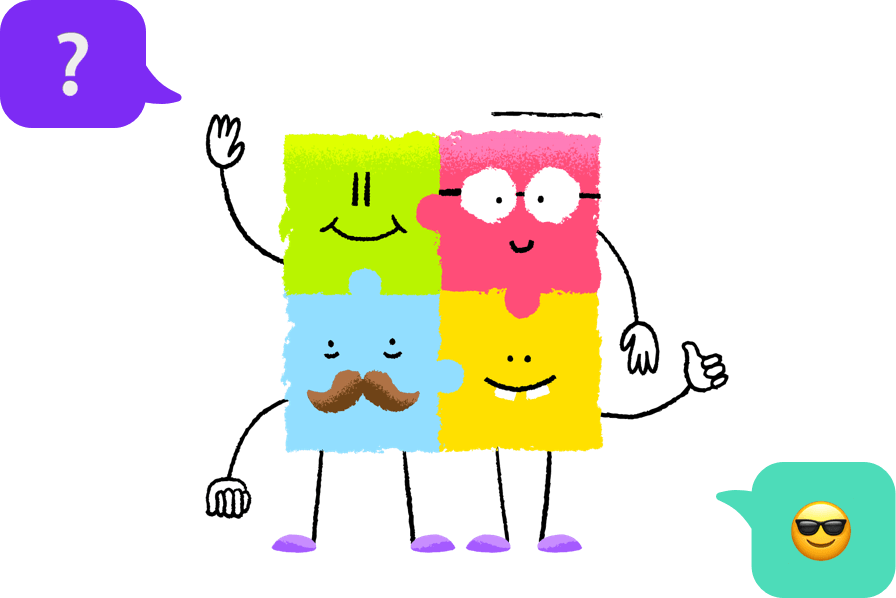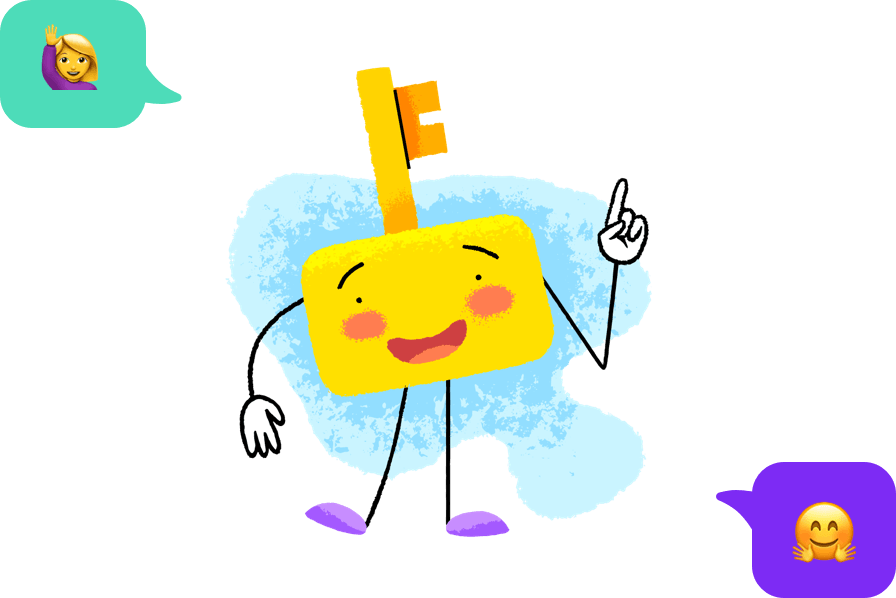"Excuse me" in German
When something happens to you, you want to stay polite, but how do you say sorry in German? One expression in German for sorry could be “Entschuldiung”. It is one of the most important words in the German language because it can be used for different questions and statements. Besides the distinction between the informal and formal form of apologizing and asking questions, you can practice talking in German and saying sorry. Just scroll down the page for the exercises. After you have looked at our examples and tried them out for yourself, you will be able to express yourself confidently.

When something happens to you, you want to stay polite, but how do you say sorry in German? One expression in German for sorry could be “Entschuldiung”. It is one of the most important words in the German language because it can be used for different questions and statements. Besides the distinction between the informal and formal form of apologizing and asking questions, you can practice talking in German and saying sorry. Just scroll down the page for the exercises. After you have looked at our examples and tried them out for yourself, you will be able to express yourself confidently.
Watch Video: "Excuse me" in German
The most common way to say "Entschuldigung" in German is "Entschuldigung". You can see the literal meaning of the word in the middle of "Entschuldigung": "Schuld", which means "guilt" or "blame". Furthermore, "Ent-" at the beginning means to undo something. So basically you are undoing someone's guilt or blame. And the "-ung" at the end of "Entschuldigung" is a typical ending for German nouns. To sum it up: this is the most common way of saying sorry. And you can use "Entschuldigung", for example, to ask your teacher "Entschuldigung?" as a question, or in the street, when you ask for directions, start with "Entschuldigung" and then say what you want to know. The other way to use "Entschuldigung" is also to use it when you make a mistake. For example, "Entschuldigung, dass ich zu spät bin" - Sorry I'm late.
We just looked at “Entschuldigung” in general. You can use it in formal situations, for example, with your teacher or with people who are older than you. But also, in informal situations with your friends and family. But there are also two versions, one for formal and one for informal situations. So, let us start with the formal one. You can say, “Entschuldigen Sie?” - “Sie” is the formal you. So now you are addressing someone in a very formal way. “Entschuldigen Sie?” - and if you are just talking between friends and family, you can use “Entschuldige?”, and this is the fair and informal version of “Entschuldigung?”.
Examples & Rules: "Excuse me" in German
How do you say "excuse me" in German
In this section, you will learn how and when to use 'excuse me' in German. The simplest form of 'excuse me' is "Entschuldigung". It is also possible to say, "Entschuldigen Sie!", "Entschuldige!" or simply "Sorry!"


The informal expression "Entschuldige!" addresses a single person in the 'du' form. It is used for questions but also for apologies. For example: “Entschuldige bitte, dass ich zu spät bin.” - Sorry I'm late."
- Informal
- One person
Friendly
at home, at school, at work


The formal expression "Entschuldigung!" is the quickest term to excuse yourself. You can use the expression anywhere to ask someone or to excuse yourself. “Entschuldigung, wo ist denn der Bahnhof?” - "Excuse me, where is the station?"
- FormalFormal
- Multiple personsOne person
Friendly
at work, at school, at home


The formal expression "Entschuldigen Sie!" is the simplest and most common term in the formal German-speaking world to excuse yourself. You can use the expression anywhere in a business environment. “Entschuldigen Sie, aber ich stimme nicht zu.” - "Excuse me, but I don't agree."
- FormalFormal
- Multiple personsOne person
Friendly
Professional
Polite
at work, in the street, at school


The informal expression "Entschuldigt!" is a term to address a group. You can use the expression anywhere to ask a group of people or to excuse yourself. “Entschuldigt bitte, der Zug war zu spät.” - "Sorry, the train was late."
- Informal
- Multiple persons
Friendly
Sympathetic
at school, at work, at a wedding


The informal expression "Sorry" is a simple and common term, especially between young people. You can use the expression anywhere and just smile nicely or raise both hands when apologizing. When you are in a bar and run into someone you would just simply say: "Sorry!” and move on.
- InformalInformal
- One personMultiple persons
Friendly
Nice
at school, at a party, at home


The informal expression "Tschuldige!" is the short form of "Entschuldigung" in German-speaking countries. It's a colloquial term used in an informal context. The expression can be used everywhere. This term does not really count as a way to excuse yourself from the bottom of your heart.
- Informal
- One person
Friendly
Dreamy
Silly
at a party, at school, at home


The expression "Das tut mir leid" is used to say that you are sorry for what you have done. You can use the expression when you feel sorry for someone or something. It is also used when someone has died, and you want to sympathize with the grieving person.
- FormalFormal
- Multiple personsOne person
Friendly
Worried
Sad
at school, at a funeral, in the hospital
Practice German Dialogues
Dialog #1 - Asking for help and directions
Everyone of us knows the situation: You are in a hurry and you can't find the place you want to go. This short informal dialogue shows how to ask for help and ask for directions, using examples of the use of "Entschuldigung".
Dialog #2 - When meeting someone unknown
Imagine you want to ask someone you do not know a question. Normally, you would start the conversation with “Entschuldigung” to show the person you want to talk to them. This chat is about how to find the train station.
Free e-book: 10 most important conversations in German
You have just learned how to say excuse me in German. Do you want to use the right vocabulary, perfect sentences, and correct grammar in your next conversation? The trick is to create your own German dialogue script, which you can easily learn! Afterward, you will be confident you will be successful in your next conversation. We have created the most important dialogues in German for you to help improve your conversation skills in German. Best of all, it is free!
E-Book with Customisable Dialogues
10 Most Important Conversations in German

Share the knowledge with your friends:






You have a question? Leave a comment.